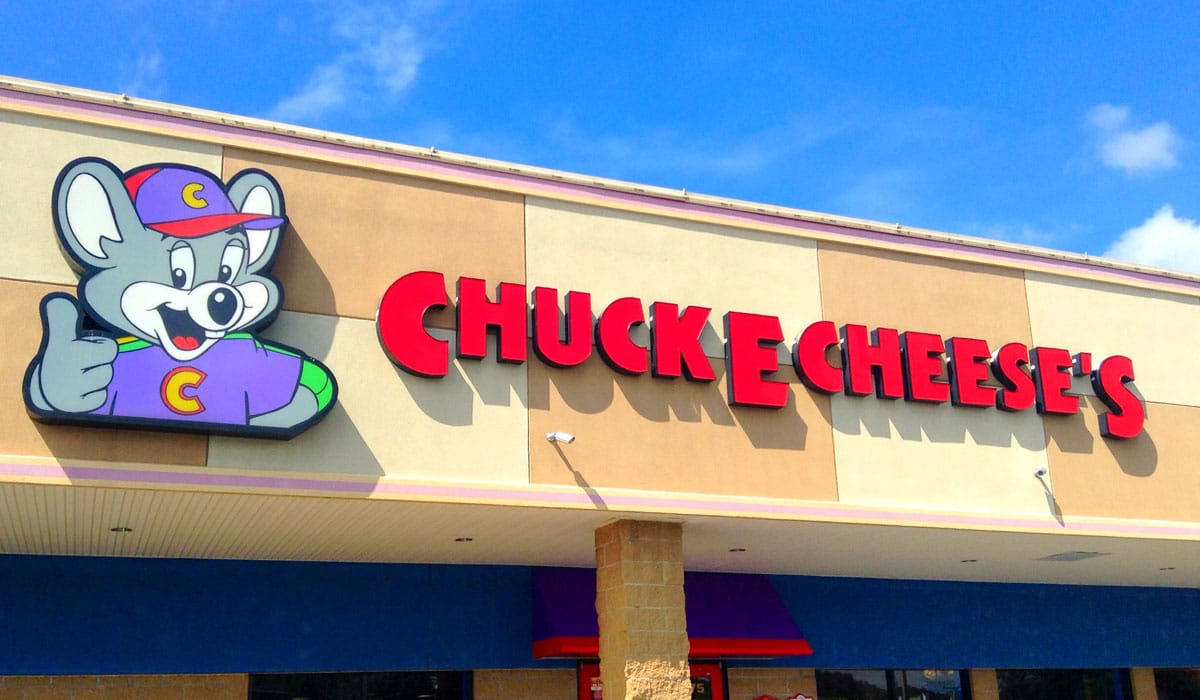Chuck E. Cheese parent CEC Entertainment is reportedly looking to raise funds to avoid bankruptcy.
The Wall Street Journal reported that the brand—which oversees 610 Chuck E. Cheese units in 47 states—has spoken with lenders about a $200 million loan to finance a stay in bankruptcy. At the same time, the restaurant is deciding whether to make a $1.9 million quarterly payment on loans at the end of the month. Some creditors are trying to form a deal to provide more capital to stave off bankruptcy and provide relief on interest payments for nearly $1 billion in debt, the Journal wrote.
While those conversations move forward, CEC announced retention bonuses for top executives. CEO David McKillips will receive $1.3 million, president J. Roger Cardinale will receive $900,000, and EVP and CFO James Howell will receive $675,000. The three executives are among 28 employees set to receive payment under the company’s Key Employee Retention Program, or KERP, which is designed to “retain employees of the Company in their current roles over the near term while providing them with financial stability.”
For all KERP participants other than Cardinale, the payments are contingent upon continued employment through the earlier of 12 months or 30 days after a restructuring. Cardinale must remain employed through September 30 to receive payment. According to the Journal, prebankruptcy bonuses have become common during the COVID-19 pandemic because they are illegal under bankruptcy law.
The COVID crisis has taken its toll on the company. CEC said that from March 17 to 26—when dining and arcade rooms were first closed—comparable venue sales dropped 94 percent year-over-year. The brand quickly shifted its focus to carryout and delivery. In early April, the company furloughed most of its hourly employees and approximately 65 percent of its support center personnel and suspended rent, which costs $7 million per month. Later in April, it formed a restructuring committee to evaluate strategic alternatives, including a possible bankruptcy filing.
A few weeks later in May, the eatertainment chain announced several safety measures in anticipation of reopening, including temperature checks for employees and customers, mandatory use of hand sanitizer by consumers, and the spacing out of games. However, the brand said eased restrictions have allowed restaurants to reopen dining rooms, but not arcade rooms. Because of that, CEC said it’s unclear when locations will reopen.
The government-mandated closures have weighed particularly hard on eatertainment brands like CEC, which garners roughly 56 percent of its revenue from merchandise and entertainment at company-run stores.
As of May 11, CEC, which also owns Peter Piper Pizza, said 86 company-run stores were closed due to sales performance. Twelve company-run locations have permanently closed since the end of 2019.
CEC said it was in ongoing discussions with landlords to secure rent concessions such as deferrals, abatements, and reduction of future rent. The company said there’s no guarantee that it will receive enough rent concessions to prevent the permanent closure of more stores.
Chuck E. Cheese received national attention in May after customers discovered that it formed Pasqually Pizza & Wings as a delivery-only brand for Grubhub. CEC said Pasqually’s pizza uses similar ingredients as a Chuck E. Cheese pizza, but features a thicker crust, extra sauce, and new blends of cheese and seasonings.







